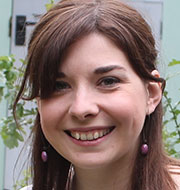 As everyone settles into the new year and tries to keep to their resolutions, the reflective nature of the period is hard to ignore. If you’re revisiting the previous year’s high and low points, it can be difficult not to feel overwhelmingly negative about global health; Ebola continues to increase, obesity is rising, and health news is filled with stories of systems and staff “failing” in attempts to deliver care to patients in the middle of a winter bed “crisis.”
As everyone settles into the new year and tries to keep to their resolutions, the reflective nature of the period is hard to ignore. If you’re revisiting the previous year’s high and low points, it can be difficult not to feel overwhelmingly negative about global health; Ebola continues to increase, obesity is rising, and health news is filled with stories of systems and staff “failing” in attempts to deliver care to patients in the middle of a winter bed “crisis.”
Gareth Iacobucci’s news piece discusses the views of John Appleby, as expressed on BBC 4 this week, who feels that use of the word “crisis” about the NHS may not be appropriate terminology. Although this view is not altogether reassuring, as the reasoning seems to be that if the current situation worsens, what word can then be used? Mr Appleby does suggest some solutions, in particular that the winners of the UK general election in May will need to commit additional funding to the NHS, along with any savings that can be made.
It is true that more funding will certainly help. But more importantly, any big change will surely demand a morale boost to ensure that staff feel capable and patients are confident they are being compassionately cared for. With all the negative press, I was heartened to read the beautifully considered personal view by Craig Brown, describing how a collaborative complaint process and small acts of kindness can improve care. It seems the old adage, “Truth never damages a cause that is just,” holds true.
In keeping with this, the European Medicines Agency has declared its new year resolution: to publish clinical study reports of successful trial applicants. The BMJ has honoured some of the pioneers of transparency, who raised the profile of having clinical trial data available to those wishing to use it to improve practice. The progress to date has been welcomed as a step forward in supporting researchers and those interpreting the data.
Rebecca Coombes also explains the new UK procedures for openly disclosing payments to doctors by drug companies, which is due to launch in 2016. These plans bring the UK more in line with other nations already starting to declare these interests on an individual level.
The new year also marks progress in clinical practice. Newborn babies in England will be screened for four additional genetic conditions after birth. A great example of improving care but still efficiently, the new screening will form part of the same “heel prick” blood test already undertaken between day 5 and 8 of life. The director of programmes for the UK National Screening Committee suggests that the screening could help 30 children a year in England, a small number but small changes can make a big difference.
Emma Parish is editorial registrar, The BMJ. You can follow her on Twitter at @ejparish
I have read and understood BMJ policy on declaration of interests and declare no competing interests.
The BMJ has chosen Médecins Sans Frontières as its 2014-15 Christmas charity.
Find out how to donate at msf.org.uk/thebmj. Many thanks for your support.
